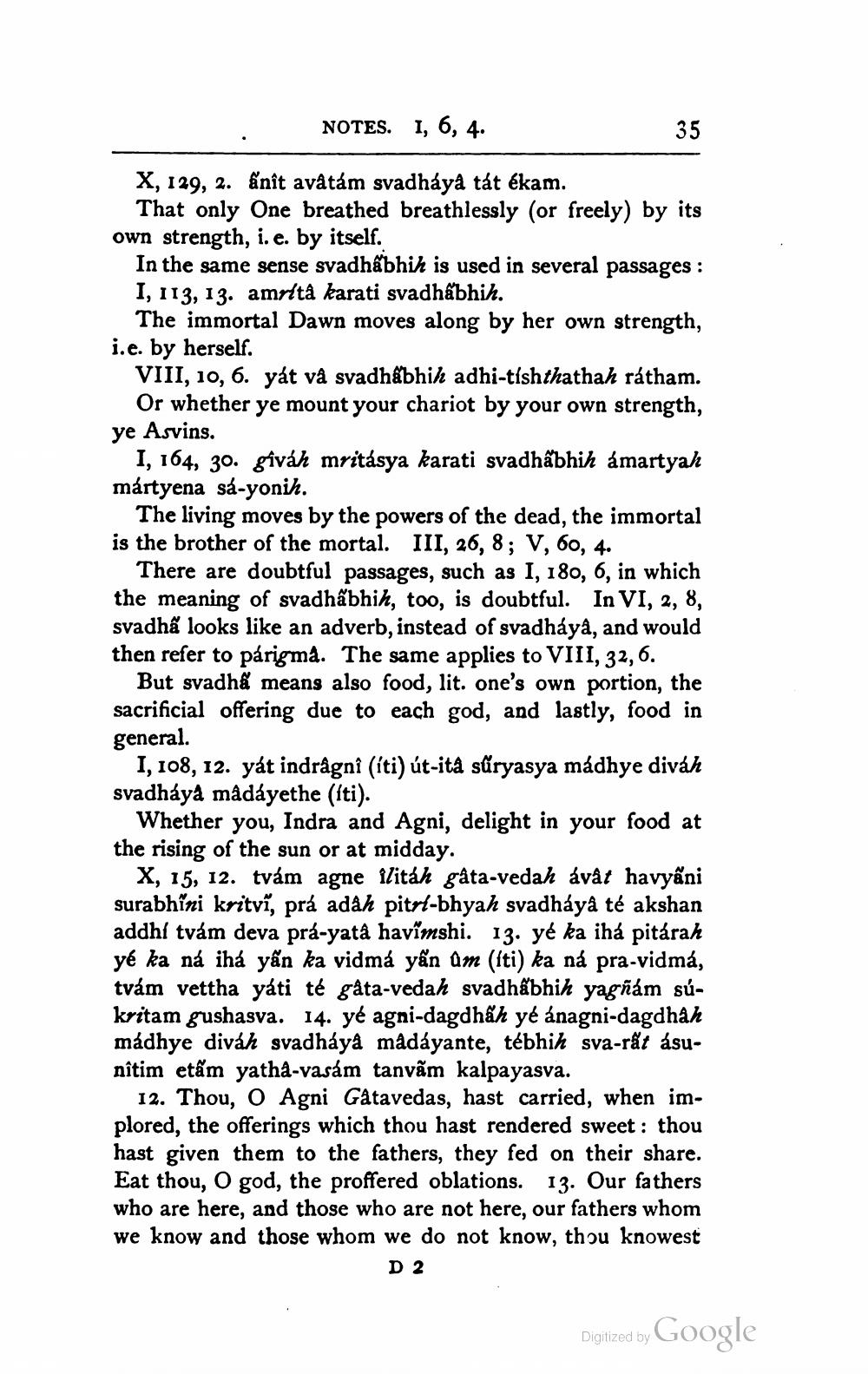________________
NOTES. I, 6, 4.
35
X, 19, 2. Ẩnít avatảm svadhảya tát (kam.
That only One breathed breathlessly (or freely) by its own strength, i.e. by itself.
In the same sense svadhábhih is used in several passages : I, 113, 13. amrita karati svadhabhih.
The immortal Dawn moves along by her own strength, i.e. by herself.
VIII, 10, 6. yát và svadhábhih adhi-tishthathah rátham.
Or whether ye mount your chariot by your own strength, ye Asvins.
I, 164, 30. gîváh mritásya karati svadhâbhih Smartyah mártyena sa-yonih.
The living moves by the powers of the dead, the immortal is the brother of the mortal. III, 26, 8; V, 60, 4.
There are doubtful passages, such as I, 180, 6, in which the meaning of svadhabhih, too, is doubtful. In VI, 2, 8, svadhã looks like an adverb, instead of svadháyà, and would then refer to párigma. The same applies to VIII, 32,6.
But svadhå means also food, lit. one's own portion, the sacrificial offering due to each god, and lastly, food in
general.
I, 108, 12. yát indragni (íti) út-ita sůryasya madhye diváh svadháyà mâdáyethe (iti).
Whether you, Indra and Agni, delight in your food at the rising of the sun or at midday.
X, 15, 12. tvám agne ilitáh gâta-vedah ávåt havyani surabhỉni kritvi, pra adâh pitrl-bhyah svadháyå té akshan addhí tvám deva prá-yata havímshi. 13. yé ka iha pitárah yé ka ná iha yãn ka vidmá yấn um (iti) ka ná pra-vidma, tvám vettha yati té gåta-vedah svadhâbhih yagñám súkritam gushasva. 14. yé agni-dagdhåh yé anagni-dagdhah mádhye diváh svadháyå madáyante, tébhih sva-råt ásunîtim etấm yatha-vasám tanvấm kalpayasva.
12. Thou, O Agni Gatavedas, hast carried, when implored, the offerings which thou hast rendered sweet : thou hast given them to the fathers, they fed on their share. Eat thou, O god, the proffered oblations. 13. Our fathers who are here, and those who are not here, our fathers whom we know and those whom we do not know, thou knowest
D 2
Digitized by Google




